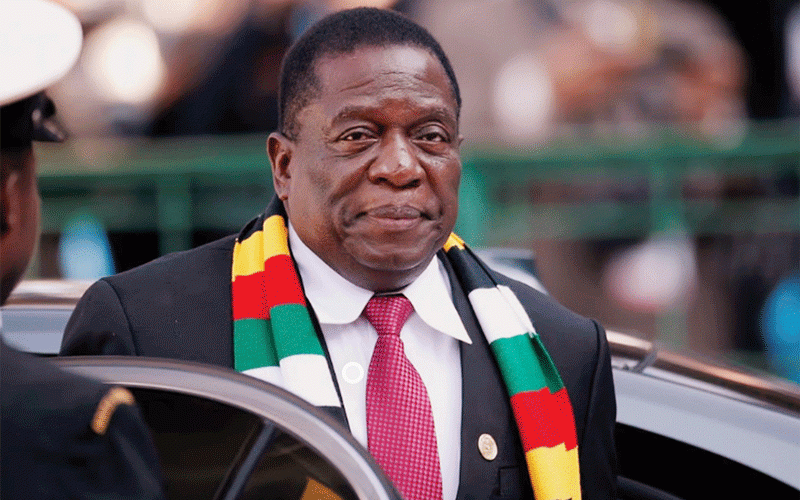
PRESIDENT Emmerson Mnangagwa is in London. He is a guest of the United Kingdom government for the coronation of His Majesty King Charles III today. It’s all pomp and fun fare, but back home, his opponents are rotting in dungeons and his people for the third time in 15 years face another cholera pandemic.
Mnangagwa is ecstatic to be at Westminster Abbey, to be hosted at a banquet at Buckingham Palace.
He was visibly excited by the idea of rubbing shoulders with European royalty when he addressed Zanu PF youths earlier this week.
However, in his excitement he said a few lies. He told Zimbabweans that the United Kingdom had removed sanctions against Zimbabwe.
Mnangagwa further hailed the invitation as the success of his re-engagement policy and efforts. That is far from the truth.
Sanctions imposed by Westminster can only be repealed by Westminster.
So, sanctions imposed by the United States Congress can only be removed by the Congress. Anything else is pure political posturing.
Zimbabwe and the United Kingdom have a long history — 133 years to be exact. A relationship that has been punctuated by violence and abuse.
- Zim tycoons elevate offspring to key roles
- Zim tycoons elevate offspring to key roles
- Mr President, you missed the opportunity to be the veritable voice of conscience
- ED to commission new-look border post
Keep Reading
A country that gained independence after protracted violence to be treated as an equal on the table of nations.
This violence did not end with independence in 1980, but has had cyclical episodes, particularly towards and after each electoral cycle.
It has been normalized, becoming part of the fabric of Zimbabwean society.
Perhaps, German philosopher, prose poet, cultural critic, philologist and composer Friedrich W Nietzsche was correct when he said: “Beware that, when fighting monsters, you yourself do not become a monster ... for when you gaze long into the abyss, the abyss gazes also into you.”
Zimbabwe’s successive governments since 1980 have abused and persecuted their opponents.
They have banned opposition activities and jailed opposition activists if they are not lucky to go into exile.
The Zanu PF government, calling itself the liberators, more often forgets the values that guided the liberation struggle and what free Zimbabwe they were promising during the struggle.
All they care about today is to extend their stay in power, even with evident leadership failure. The failure can be seen both socially and economically.
Millions of families each year have to depend on donor food and medicines, citizens exposed to medieval disease such as cholera.
The majority of Zimbabweans are unemployed and unemployable. Industries and companies have shut down and the only viable operations are the extractive industries and the middlemen economy as we barely produce.
In the last 43 years, most industrial areas have had smokeless boilers and warehouses have been turned into mega-churches for those desperate for miracles.
On the political front, the regime has been tweaking the laws to persecute opposition activists.
They are mostly arrested on trumped-up charges and stay on long pre-trial detentions before they are tried and, in some cases, have the charges withdrawn or quashed.
Some are unlucky. This category is starting to grow, especially with general elections looming.
In the last fortnight alone, three prominent opposition activists have been convicted. These are Fadzayi Mahere, Jacob Ngarivhume and Job Sikhala.
The convictions are tailored to instil fear among activists and in some cases block those who want to contest using the electoral law that is undergoing amendments.
The restriction of the democratic space is not new. It has been there since the Rhodesian era.
It even got worse after the November 1965 Unilateral Declaration of Independence by Ian Douglas Smith.
All the big names in the liberation struggle had a stint in the Rhodesian jails either as convicts or in restriction or preventive detention.
This gets us back to Nietzsche. The liberation heroes looked long into the abyss and they became the monster they were fighting.
Franchophone Afro-Caribbean psychiatrist and political philosopher Frantz Fanon says it too in his book, The Wretched of the Earth, when he counsels that the nationalists were more about replacing the old regime and mimicry.
That they envied the colonialists and dreamed to be in that position too.
It is hard to confront the same question again and again. The question whether our freedom was deferred or betrayed. Probably it is time we ask: How can we reclaim our freedom?
What benefits can be derived from attending the coronation ceremony in Zimbabwe? Sadly, the response is nothing.
Mnangagwa does not have a long itinerary that is, for now, publicly known of meeting anyone senior from Whitehall on the schedule.
Nothing is known about which influential persons in Westminster he will meet on the sidelines of the coronation.
What remains clear is that Mnangagwa envies being a monarch. He wants to be like Charles III.
His actions should be beyond reproach by minions in his fiefdom. And, therefore, this coming election will be important to realise that dream.
Mnangagwa wants to win it at all costs. He wants to ensure Zanu PF has a two-thirds majority in Parliament so that he can remove constitutional term limits.
He wants to be king and Zimbabwe his fiefdom. To that end, like Smith, Mnangagwa wants his so-called second republic to be there until the end of time.
That is the sad story of the week. Activists should be wary. The die is cast and the lines have been drawn in the sand.
We shall not have enough of the king Mnangagwa congratulating King Charles III in the public media. An ambition to take us back in time to kingdoms and all-powerful monarchies.
What a week it has been!










